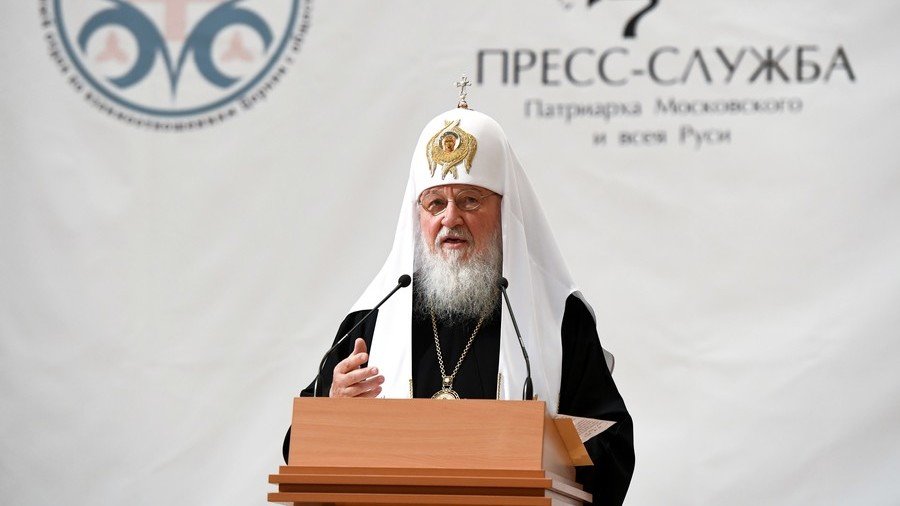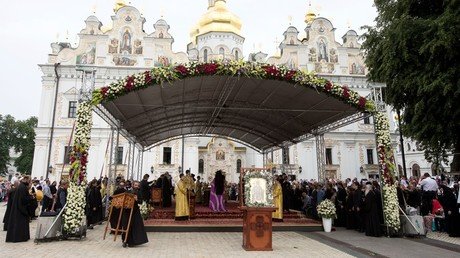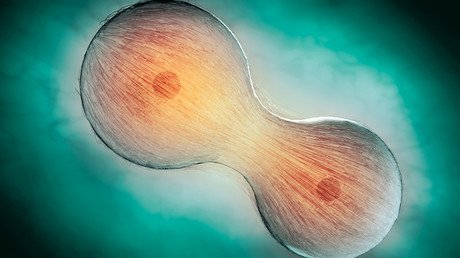A ‘global conspiracy’ undermines Orthodox world – head of Russian Church

There is a global conspiracy against Orthodox Christianity, the head of the Russian Church believes. Moscow’s ongoing quarrel with Constantinople over Ukraine is just a symptom, he said.
Patriarch Kirill alluded to a global conspiracy against Orthodox Christianity as the cause of the ongoing rift between his church and the Ecumenical Patriarchate of Constantinople during an annual religious conference in Moscow.
The stakes are very high, and the incentive to destroy the unity of the Church has a global dimension. It’s not a fight over jurisdiction. It’s a fight against the only powerful Orthodox force in the world.
The Russian Christian leader added that Orthodox Christianity served as an “island of freedom” standing against values and ideas forced upon mankind by globalism.
The allegation came as the leader of the Russian Orthodox Church was commenting on the possibility of healing a rift with Constantinople. The two Orthodox Churches are no longer in a spiritual communion after the Russian Church broke ties with its Istanbul-based counterpart. The move was in response to Constantinople revoking a 1686 decision, which acknowledged Moscow’s authority to appoint the Metropolitan of Kiev and all Ukraine.
The Ukrainian Orthodox Church is a canonical self-governing part of the Russian Orthodox Church. Once a regular archeparchy, it was granted increasing autonomy over the decades, reaching its current status after the dissolution of the USSR.
Still the Filaret II (Denisenko), who was leader of the Ukrainian branch since 1968, was not satisfied with mere autonomy and demanded that his church were recognized autocephalous, i.e. fully independent from Moscow. This led to a schism, with Denisenko declaring himself ‘Patriarch’ of a ‘Ukrainian Orthodox Church of Kiev Patriarchate’ an organization that was not recognized as a proper Orthodox Church by any other canonical churches until recently.
There is also the “Ukrainian Autocephalous Orthodox Church”, another schismatic organization which has roots in the Ukrainian nationalist movement of the early 20th century. It is too headed by a former priest of the Ukrainian Orthodox Church, Makariy (Maletych), who claims the title of a Metropolitan.
In mid-October the Patriarchate of Constantinople recognized both Denisenko and Maletych as canonical priests, rejecting Moscow’s declaration of them both as schismatic. The move is meant as a step towards the eventual creation of a new Ukrainian Orthodox Church, which is presumed to initially be part of the Patriarchate of Constantinople but would quickly be granted autocephaly.
This left Moscow with the option to either follow Constantinople’s suit or announce that there can be no more communion with the church, which considers schismatic fully ordained priests. Moscow chose the latter.
READ MORE: The new Great Schism? What's next for the world of Orthodox Christianity
Patriarch Kirill said the Orthodox Christianity split over Ukraine should not be viewed as a mere extension of political battles in the country or even a clash of Moscow and Constantinople for jurisdiction over Ukrainian parishes.
The tragedy… has a mystical dimension, and this is how we should see it.
If you like this story, share it with a friend!















